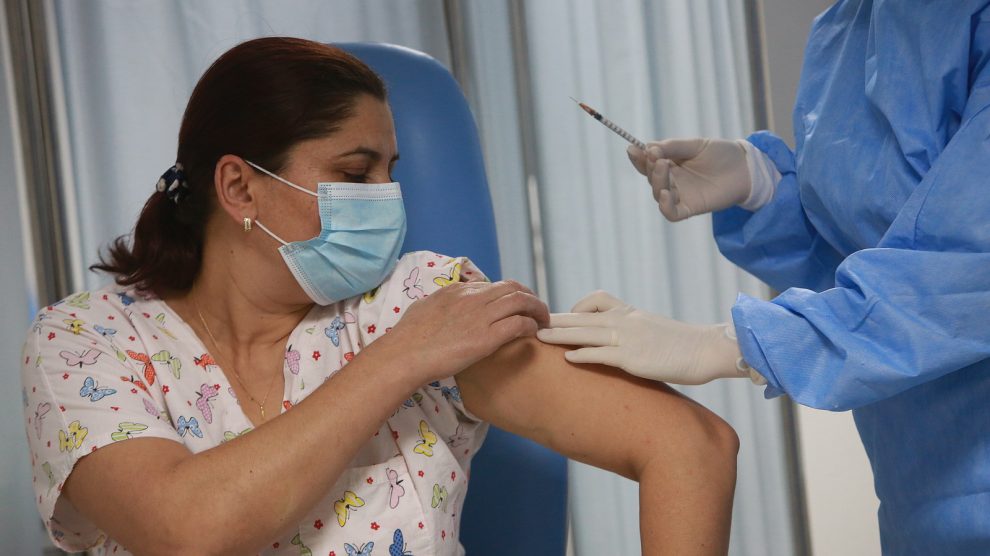Romania on August 30 became the latest country to offer financial incentives to individuals who get vaccinated against Covid-19.
First it was meatballs, now it’s cash, or at least meal vouchers.
At its weekly cabinet meeting on August 30, Romania’s government agreed to pay 100 lei (around 20 euros) in meal vouchers to anyone who gets vaccinated against Covid-19.
- In Bucharest, Covid-19 vaccines come served with meatballs
- Romania’s digital nomad visa might be the most accessible yet
- Is it time for Romania to cash in on the fame of the Transfăgărășan Highway?
The offer will be open to all of those vaccinated from this week onwards, while all Romanians who have been fully vaccinated will be allowed to enter a lottery promising cash prizes.
Funding for the programme will come from the budget of the Romanian Health Ministry.
Ioana Mihăilă, Romania’s health minister, said that the offer would not be open-ended, and that it was intended to encourage as many people as possible to get vaccinated “as soon as possible”.
“We will see how successful the scheme is, and then decide if it is worthwhile extending it,” Mihăilă told a press conference after the cabinet meeting. “What’s important is that people get vaccinated. We have increasing numbers of unvaccinated people being admitted to hospital with Covid-19, including children.”
Mihăilă also said that the government was “considering” introducing obligatory Covid-19 tests for public sector employees who come into contact with vulnerable groups but refuse to get vaccinated, tests for which public sector workers would have to pay for themselves.
The desperate measures comes as Romania struggles to convince its highly sceptical public to get the vaccine. According to the Romanian government, the country has the second lowest vaccination rate in the European Union, with just 26.4 per cent of the population fully vaccinated.
Only neighbouring Bulgaria has a lower vaccine take-up rate, of 20 per cent.
Rising number of cases
Romania recorded 699 new cases of Covid-19 on August 30, with Dr Valeriu Gheorghiţă, the coordinator of the country’s vaccination campaign, warning that the country will see more than 2,000 cases per day by mid-September.
“And that will by no means be the peak,” he said.
A similar cash-for-vaccines scheme in Serbia enjoyed a reasonable level of success earlier this year. There, citizens were offered 3,000 dinars (around 25 euros) if they were jabbed before the end of May.
Serbia has fully vaccinated 43 per cent of its population.
In the United States meanwhile, 20 states now have lotteries for the fully vaccinated, while others have handed out free tickets to baseball games to those getting jabbed.
In July, US President Joe Biden called on states to to directly pay 100 US dollars to anyone willing to get their first dose. Around 20 states now have special lotteries for the vaccinated, while others have handed out free tickets to baseball games to those getting jabbed.
In June, Radu Mihaiu, the mayor of Bucharest’s Sector 2, set up a mobile Covid-19 vaccination centre in the city’s largest market, offering a free portion of the mici (grilled meatballs; which for many have long been the market’s main attraction) to all those who signed up for vaccination.
Incentives work
According to Dr Christopher Labos of McGill University’s Office for Science and Society, vaccine incentives work.
“Incentives have been used and studied in many different fields of medicine and have been used to get people to quit smoking, exercise more and eat better,” he wrote earlier this month.
“Financial incentives to improve vaccination rates have worked before for other vaccines, and lotteries have been used to boost uptake of HIV treatment, though whether lotteries will push people to get vaccinated against Covid-19 remains to be seen.”
Back in Romania, Dr Gheorghiţă last week announced plans to set up vaccination centres in schools from September 13, when the new school year begins. Advertisements encouraging parents to vaccinate their children have also begun airing on Romanian television
Romania currently offers Covid-19 vaccines to all those aged over 12. However, those aged under 18 need to have a parent present when receiving the vaccine.
Unlike many news and information platforms, Emerging Europe is free to read, and always will be. There is no paywall here. We are independent, not affiliated with nor representing any political party or business organisation. We want the very best for emerging Europe, nothing more, nothing less. Your support will help us continue to spread the word about this amazing region.
You can contribute here. Thank you.








Add Comment